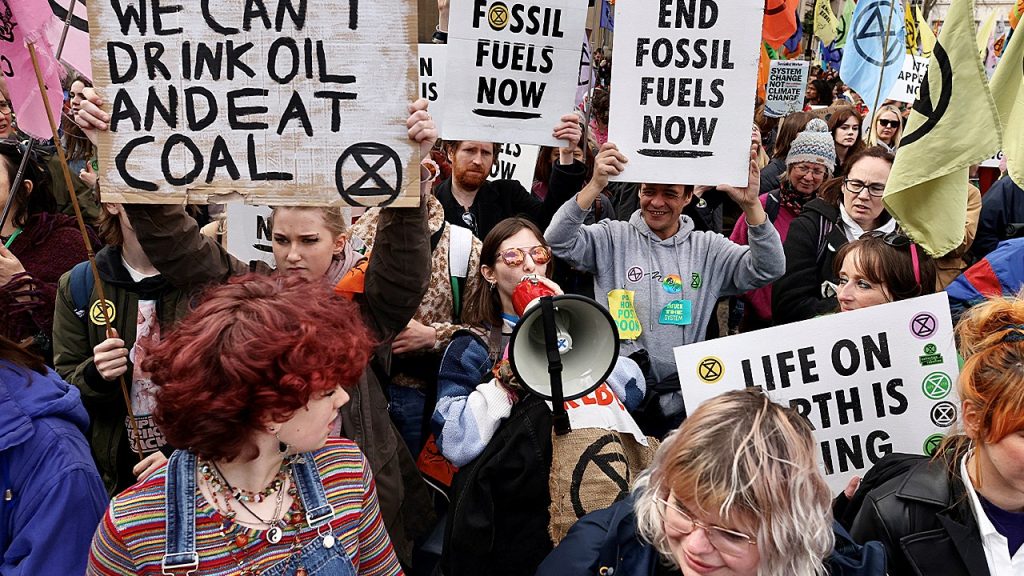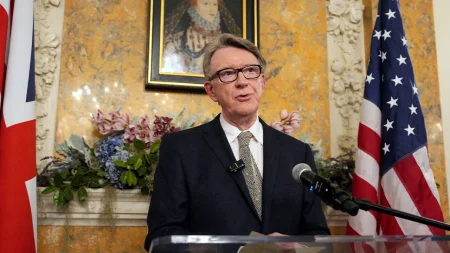Climate Anxiety Among British Youth: Understanding the Impact and Finding Resilience
A recent report by the United Kingdom Health Security Agency (UKHSA) has highlighted the significant role climate change anxiety plays in the mental health challenges facing Britain’s young people. The comprehensive assessment, titled “Climate change and mental health: thematic assessment,” reveals that concerns about environmental degradation are not only affecting youth’s current psychological wellbeing but also influencing major life decisions, including whether to start families. Rather than dismissing these feelings as irrational, the report acknowledges them as natural responses to legitimate environmental concerns, while suggesting community-based approaches to building resilience in an uncertain world.
According to the UKHSA findings, many young Britons are experiencing what experts term “eco-anxiety” – a specific form of distress triggered by awareness of climate threats and environmental degradation. The report also identifies a related phenomenon called “solastalgia,” describing the profound sorrow people feel when witnessing the deterioration of familiar environments. These emotional responses manifest in various ways, but perhaps most strikingly, nearly 40 percent of survey respondents indicated that climate change has made them hesitant to have children. These individuals cite serious concerns about their potential children’s future safety, access to resources, and overall quality of life in a world facing environmental challenges. This revelation provides a window into how deeply climate concerns are affecting personal life planning among Britain’s youth, transforming abstract environmental worries into concrete life decisions with long-term demographic implications.
In response to these findings, the UKHSA has proposed several approaches to help young people build emotional resilience while acknowledging the legitimacy of their concerns. Rather than pathologizing climate anxiety, the agency recommends community-based activities that foster connection and collective action. Among the suggested interventions are participation in yoga classes, citizen science projects, and “climate cafés” – informal gathering spaces where people can discuss environmental concerns in a supportive setting. The report notes that engagement in such group activities has been associated with reduced psychological distress, suggesting that communal approaches may be more effective than individual interventions. This community-centered strategy reflects an understanding that climate anxiety is not simply an individual psychological issue but a collective experience requiring social solutions.
The UKHSA report’s framing of climate anxiety as a legitimate public health concern has not gone without criticism. Some critics, like Jason Isaac of the American Energy Institute, have characterized the report’s approach as institutionalizing “climate hysteria” rather than addressing genuine mental health needs. Isaac argues that terms like “eco-anxiety” and “solastalgia” represent not legitimate medical conditions but the manifestation of fear-driven messaging that makes people feel unwarranted guilt about prosperity and family life. This critique aligns with perspectives like that of Bill Gates, who has recently distanced himself from climate alarmism, stating his belief that climate change, while serious, “will not lead to humanity’s demise.” These dissenting voices suggest that the focus should be on tempering apocalyptic narratives rather than treating their psychological effects.
Despite these criticisms, the UKHSA maintains that addressing the psychological impacts of climate change represents an essential component of comprehensive public health policy. The agency’s approach acknowledges that environmental changes are creating real challenges while avoiding the extremes of either dismissing climate concerns as unfounded or embracing apocalyptic visions of the future. This balanced perspective recognizes that people’s anxiety about climate change stems from a legitimate understanding of scientific data and observed environmental changes. By validating these concerns while offering constructive approaches to resilience, the agency attempts to chart a middle path that neither minimizes genuine environmental challenges nor contributes to paralyzing fear and despair among young people.
The UKHSA report ultimately illuminates a profound societal challenge: how to acknowledge the serious threats posed by climate change while empowering rather than overwhelming the next generation. The high percentage of young Britons questioning whether to have children signals that environmental concerns have moved beyond abstract policy debates to influence the most intimate life choices. This reality demands thoughtful approaches that address both environmental sustainability and psychological wellbeing as interconnected issues. Whether through community-based initiatives like climate cafés or broader policy changes, the report suggests that building resilience in the face of climate change will require approaches that strengthen social connections and provide meaningful avenues for constructive action. As societies continue navigating the complex psychological terrain of environmental change, finding this balance between acknowledgment and empowerment remains a critical public health challenge.















